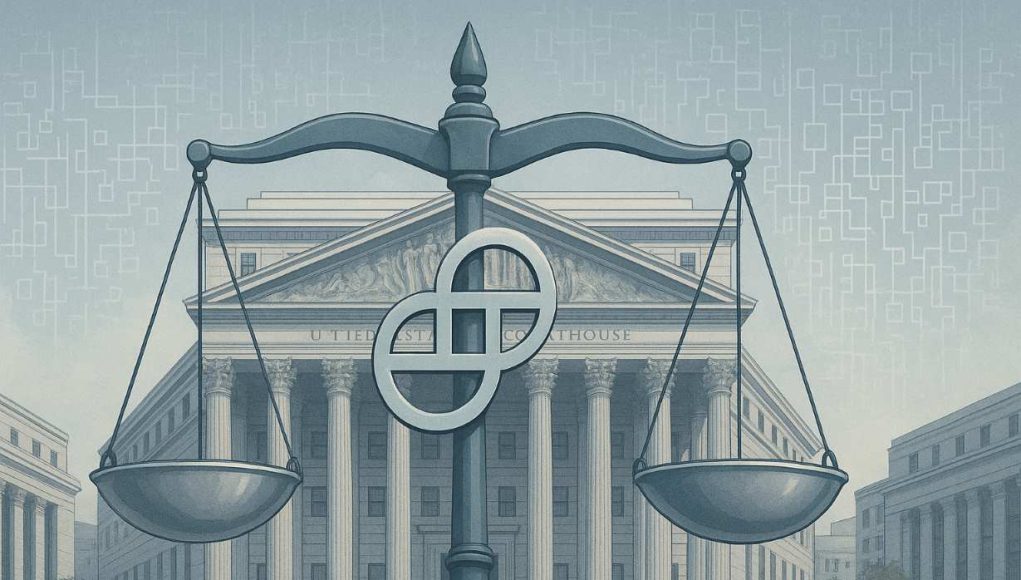Gemini and the U.S. Securities and Exchange Commission (SEC) told a New York federal court they’ve reached a resolution in principle to settle the regulator’s lawsuit over the Gemini Earn program. The tentative deal, as disclosed in a joint filing, is subject to approval by the SEC. The parties must submit the final settlement papers by December 15, 2025.
The development marks a turning point for the high-profile Gemini Earn settlement. If approved, it could close out one of the most closely watched crypto lending cases of the past two years.
Background: From Earn to Enforcement
The SEC filed its lawsuit against Gemini in January 2023. Regulators alleged that Gemini and its partner Genesis Global Capital conducted an unregistered securities offering through the Earn program. Customers lent crypto assets to Genesis in exchange for yield. Gemini acted as the program’s facilitator.
The Earn program failed after Genesis’s liquidity crisis. Its collapse triggered a broader wave of enforcement and litigation across the digital asset lending sector.
How We Got Here: Parallel Settlements
In parallel, Genesis faced its own regulatory pressure. The company reached an SEC settlement in 2024, agreeing to pay $21 million depending on creditor distributions. That resolution, along with a separate settlement with the New York Attorney General, helped unlock repayments to affected customers.
By mid-2025, more than $2 billion in crypto had been distributed back to Earn users through the Genesis bankruptcy. Gemini reported that approximately 97% of customer assets had already been restored in kind.
>>> Read more: Gemini Exchange: $50M Settlement and NY Crypto Ban
The Significance of “Resolution in Principle”
In U.S. litigation, a resolution in principle means the parties have agreed on the framework of a deal. The Commission still needs to approve final details, including any financial penalties or compliance undertakings.
The filing sets December 15, 2025, as the deadline for formalizing the agreement. This gives regulators and the exchange time to finalize terms.
Broader Enforcement and Market Context
The Gemini case is part of a wider wave of crypto enforcement actions against lending platforms that thrived during the bull run of 2021–2022. Celsius, BlockFi, and Genesis all became flashpoints in debates over crypto regulation and consumer protection.
These disputes are now being resolved mainly through settlements rather than trials. The trend shows that regulators and companies are choosing to close legacy matters with negotiated outcomes—another reminder of how the industry is working through the last cycle’s crypto lending case backlog.
Implications for Gemini
For Gemini, the Gemini Earn settlement removes a major legal overhang as the company expands following its public listing earlier this month. The SEC lawsuit had raised questions about Gemini’s compliance posture and long-term prospects in the U.S. market.
The final terms remain undisclosed. Any financial penalties or compliance commitments will become clear once the Commission signs off. Even so, clearing this hurdle would strengthen Gemini’s position compared to rivals still facing regulatory uncertainty.
What It Means for Customers and Investors
For retail users, much of the damage from the Earn collapse has already been addressed through the Genesis bankruptcy. That process has returned billions in crypto to affected customers. The settlement with the SEC does not directly alter those repayments. However, it adds regulatory closure to the saga.
For investors, the deal underscores that high-profile crypto lending cases are nearing their end. This may help clear the path for a more stable market environment as new crypto regulation frameworks are debated in Congress and abroad.
>>> Read more: Ether Machine Adds $654M in ETH Ahead of Nasdaq Listing
To finalize the Gemini Earn settlement, the SEC must approve the terms in December. Until then, uncertainty remains over the precise conditions of the deal.
Still, the agreement signals the approaching end of one of the longest-running battles between a major crypto exchange and U.S. regulators. It may also mark the conclusion of the SEC’s early enforcement cycle against lending products, setting the stage for the next chapter in digital asset oversight.
Readers’ frequently asked questions
Does this settlement mean Gemini Earn customers will receive additional repayments?
No. The settlement with the SEC does not directly change customer repayments. Those distributions are being handled through the Genesis bankruptcy process, which has already returned most assets in kind to Earn users.
Does the settlement change how crypto lending will be regulated in the U.S.?
Yes, indirectly. By treating Earn as an unregistered securities offering, the SEC reinforces its stance that most yield products must register or comply with securities law. This sets a clearer precedent for how it will handle similar products.
How does this case affect future crypto lending products in the U.S.?
The resolution signals that regulators view prior lending programs as unregistered securities offerings. Any future yield or lending products in the U.S. will likely need to register with the SEC or fit within an approved regulatory framework to avoid similar lawsuits.
What Is In It For You? Action items you might want to consider
Track Gemini’s compliance and product roadmap after settlement
If finalized, the settlement will likely shape Gemini’s ability to launch new products in the U.S. Investors should monitor whether Gemini shifts focus to regulated offerings or expands internationally.
Watch how regulators treat future yield products
The SEC’s stance that Earn was an unregistered securities offering sets a precedent. Traders and institutions should be cautious with any new high-yield or lending platforms that don’t clearly fit within U.S. securities law.
Monitor broader crypto lending case closures
With Genesis, BlockFi, and now Gemini moving toward resolution, this enforcement cycle is nearing its end. Market participants should watch how the closure of these cases influences institutional confidence and liquidity flows into the sector.










